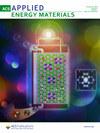Developing language teachers’ professional generative AI competence: An intervention study in an initial language teacher education course
Abstract
Generative Artificial Intelligence (GenAI) tools have been argued to have transformative potential in education; yet existing literature suggests that language teachers generally lack the abilities to leverage these tools effectively and critically. Conducted in an initial language teacher education programme at a Hong Kong university, this mixed-method intervention study aims to explore the effects of explicit training for using GenAI tools for language teaching in rising pre-service language teachers’ professional GenAI competence (P-GenAI-C). 54 M.Ed students took part in an 11-week course intervention aiming to enhance the five aspects in the P-GenAI-C framework. Analysis of pre- and post-intervention questionnaires, which encompassed a mix of open and closed items to gather participants’ knowledge and perceptions of utilising GenAI tools, as well as the follow-up interviews, revealed that the intervention was effective in stretching all aspects of pre-service teachers’ P-GenAI-C. While there was greater evidence of improvement in participants’ pedagogical competence and critical awareness of GenAI tools deployment, there was less evidence of development in other aspects, such as teachers’ capacity to guide their students to use GenAI tools effectively and responsibly. This discrepancy might be attributed to the lack of such content in the course intervention. Implications for incorporating elements of P-GenAI-C into teacher preparation courses and programmes are discussed.

 求助内容:
求助内容: 应助结果提醒方式:
应助结果提醒方式:


